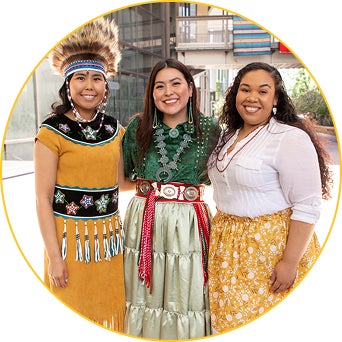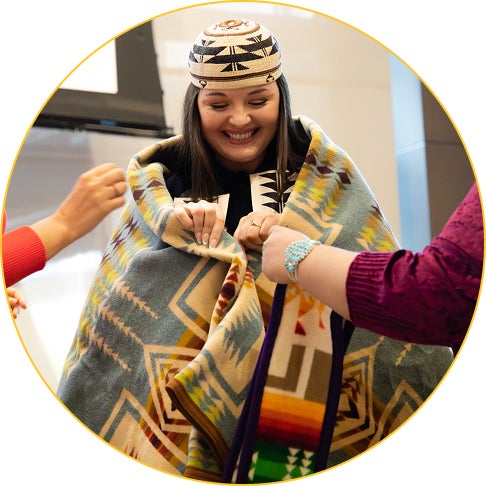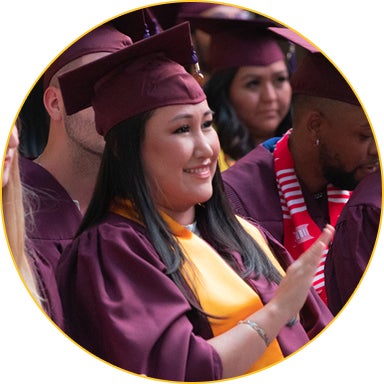Advancing Tribal sovereignty and Indigenous justice since 1988
Established more than 35 years ago, the Indian Legal Program (ILP) at the Sandra Day O’Connor College of Law at Arizona State University has grown to become one of the most respected Indian law programs in the nation. Situated in the heart of the Southwest, with connections to Arizona’s 22 tribes and others throughout the nation, ILP is ideally aligned for students looking to study the developing field of Indian law. Our nationally recognized faculty members are leading scholars in their fields, producing research and publications, as well as providing outreach and public service.
Home to one of the highest concentrations of Native American students and Indian law students in the nation, ASU Law has an active Native American Law Students Association that hosts events, participates in pro bono activities and mentors incoming students. Students have an instant network to support them academically, professionally and socially. Working for tribes, in public service, private practice and nonprofit organizations, Indian Legal Program alumni are making a difference in Indian Country. The program's positive reputation is in large part due to the success and support of its graduates.
ILP projects and programs
- Rosette LLP, American Indian Economic Development Program provides an innovative curriculum and hosts an annual conference on tribal economic development.
- National conferences and lectures by top scholars and attorneys on legal issues in Indian country.
- Arizona Native Vote Election Protection Project assists voters and tribal communities to prevent voter disenfranchisement.
- Tribal Court Trial Skills College provides training for tribal court advocates.
- Native American Pathway to Law Initiative provides community outreach, mentorship, and pre-law advising to help improve access to justice in tribal communities.




